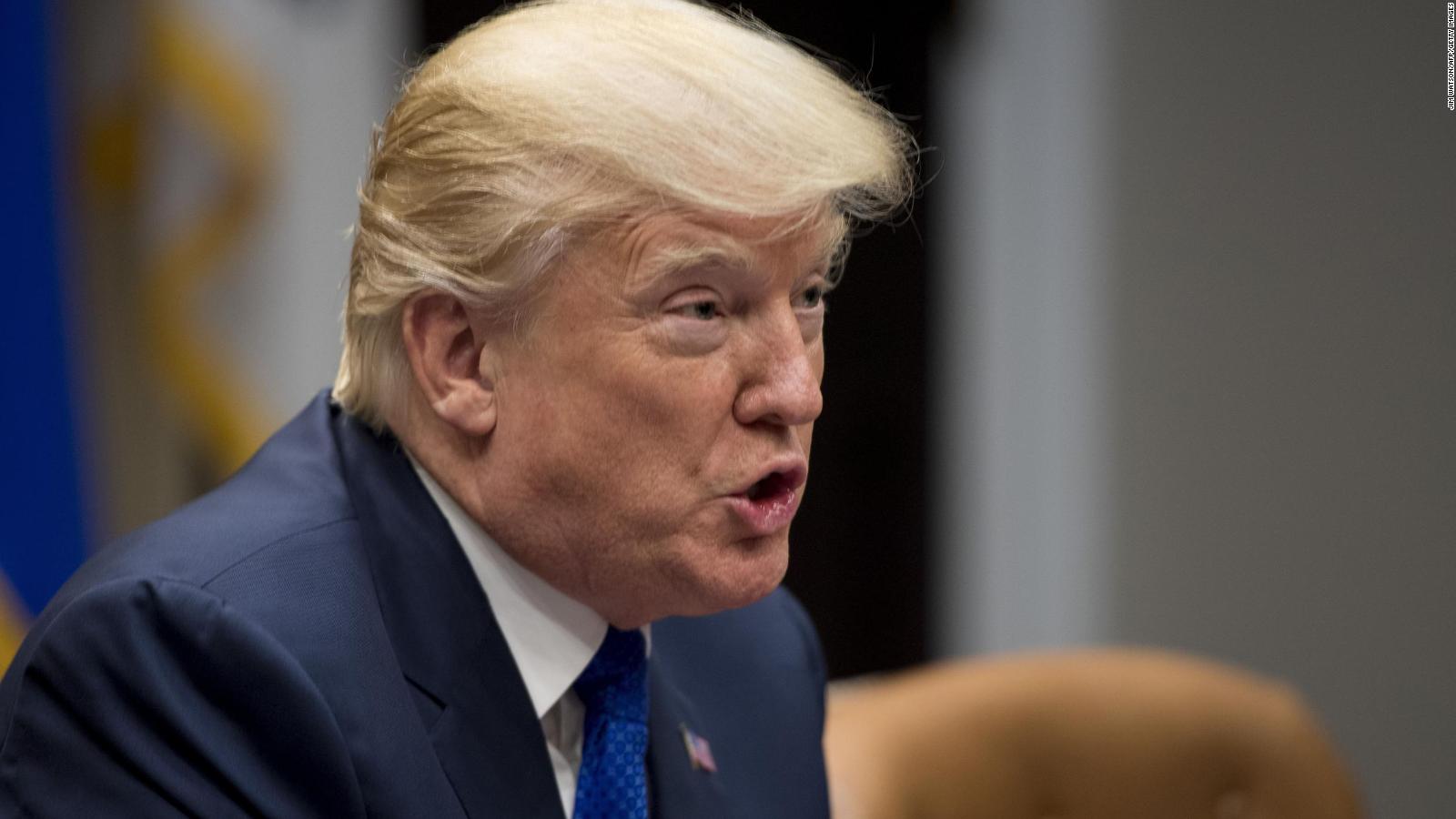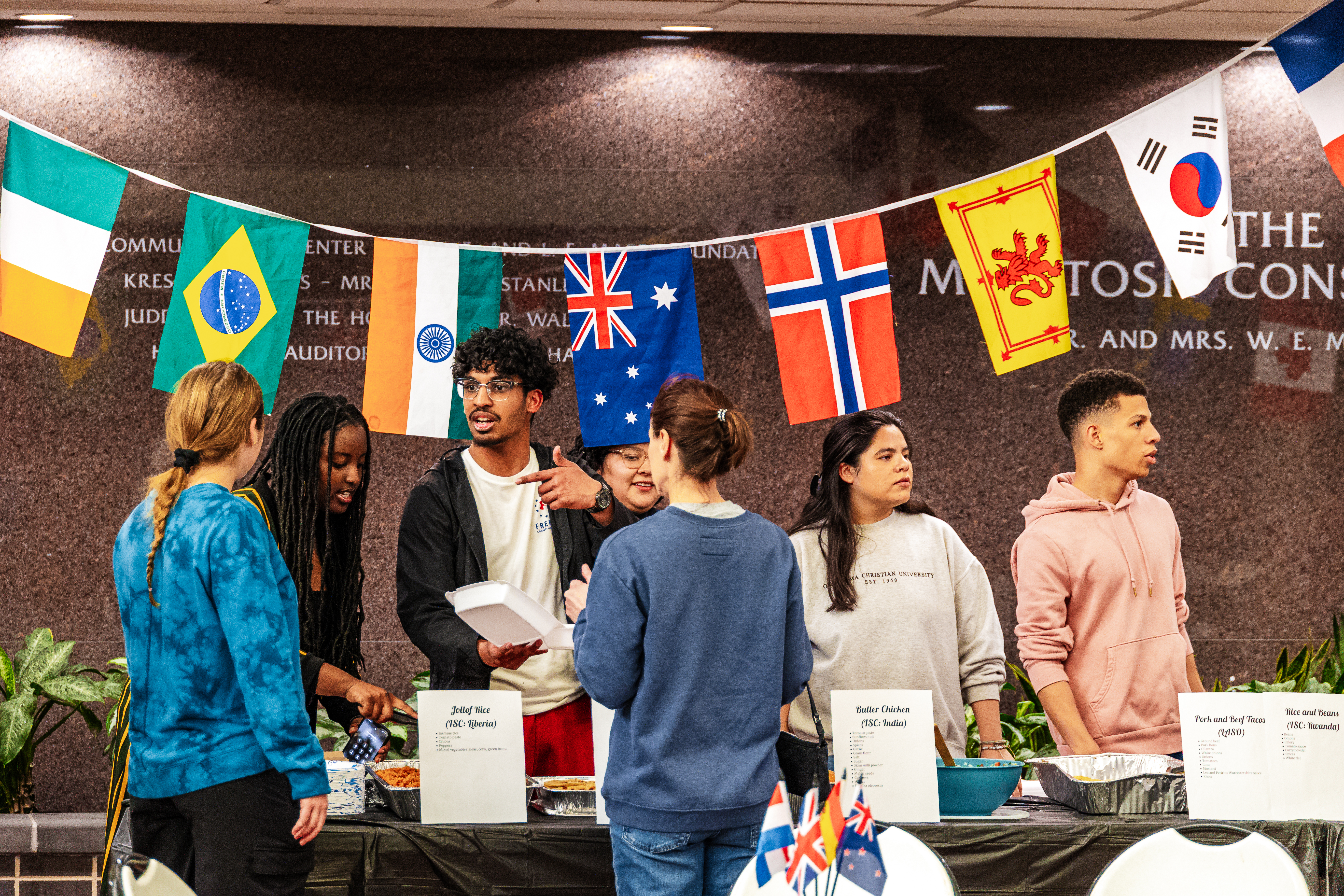Alleged comments made by President Donald Trump earlier this month struck a heartstring with the Oklahoma Christian University campus, as students and faculty vocalize support for the international students who represent nearly 60 nations across the globe.
While discussing protected immigrants from Haiti, El Salvador and African countries as part of a bipartisan immigration deal Jan. 11, the Washington Post reported that several people briefed on the meeting heard Trump say, “Why are we having all these people from s***hole countries come here?”
The president then, allegedly, suggested the U.S. bring in more people from countries like Norway, whose prime minister he met with Jan. 10. According to a White House official, Trump also suggested he would be open to more immigrants from Asian countries because he “felt that they help the U.S. economically.”
“Initially, when I heard these comments, I was not surprised,” Oklahoma Christian Multicultural and Service Learning Coordinator Gary Jones said. “I was not shocked. It seems to be par for the course for him. I thought what he said was absolutely awful, but I thought he said exactly what he meant.”
Trump also allegedly singled out the nation of Haiti, saying their immigrants must be left out of any deal. “Why do we need more Haitians?” Trump allegedly said, according to people familiar with the meeting. “Take them out.” In November, the president announced plans to return home nearly 60,000 Haitians by July 2019 who had been granted federal protection after the 2010 earthquake.
“I thought there was no mistake that the countries and the cultures that he took issue with have people of darker complexion and his suggestion of where we could get great people—it was very borderline Hitler-esque—blonde hair, blue eyes, let’s get some Norwegians and Swedish folks instead,” Jones said. “It not only makes people from Haiti or Africa feel somewhat embarrassed to be put into that place, but I think it makes people who have blonde hair and blue eyes feel kind of weird, too.”
According to Jones, he hopes the international students on the Oklahoma Christian campus will remember this is the opinion of only one person.
“That one individual’s comments do not reflect the beliefs of our country, our local community, our campus or our church community,” Jones said. “I want our international students to know that every student is welcome here. We pride ourselves on being a very diverse student body. I hate it because he says things like this and gets to go away and do his own thing, but we have to find a way to live together.”
Senior Grace Nduwimana from Bujumbura, Burundi said she considers her country one of those called out by Trump’s comments.
“It is quite unfair to go paint with a broad brush and label countries with derogatory terms like the comment he made when, more often than not, those countries are in a situation where Mother Nature has rendered them helpless,” Nduwimana said. “I think it is just a bit shallow to say.”
Coverage of Trump’s comments also took the unusual step of allowing the word “s***hole” printed and put on air since, according to the New York Times, “it is exceedingly rare for the country’s biggest news organizations to publish a quote that includes an expletive; usually they employ a censored or blanked-out version.”
While Fox News spelled the word out with asterisks, CNN and MSNBC used the unexpurgated expletive in capital letters at the bottom of the screen.
“It would be futile to mask the word when the language itself, in reference to Haiti and African countries, was so extraordinary,” Associated Press Vice President for Standards John Daniszewski told the New York Times.
When dealing with the issue on Oklahoma Christian’s campus, Jones said he encourages students to not only reach out but to speak up, be proactive and to be intentional in saying that “those things are not okay.”
“I used to always hear this saying that ‘silence is perceived consent,’ but I think it is greater than that,” Jones said. “I think silence is often taken as perceived consent, but I also think confirmed silence is complicity. I think one of the worst things we can do in this moment is to do nothing and say nothing. Sometimes, it is nothing more than walking down the sidewalk and speaking to someone maybe you have never talked to before and making today the day you say, ‘Hey, how are you doing?’ Something as simple as that can tell students, ‘I see you. I value you being here.’”
As Trump continues to deal with the backlash from his alleged comments, Nduwimana said if she had the chance to sit down with the president, she would ask him to “knock it off.”
“You are an educated man and you should act like it,” Nduwimana said. “Your words have power. Your words have immeasurable power and with that, comes responsibility.”














Be First to Comment